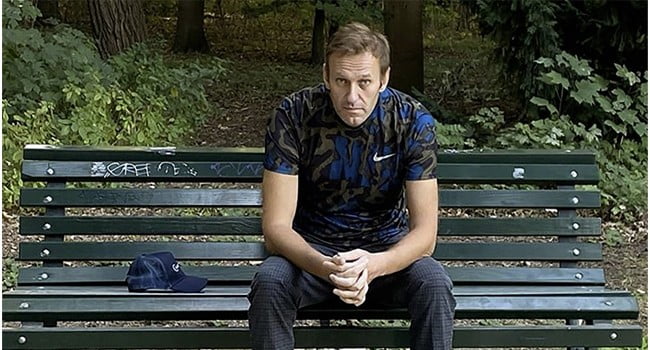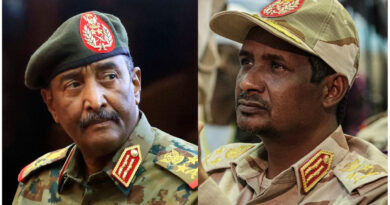Russian officials said on Friday that metabolic problems and pancreatitis caused Kremlin critic
According to channels News In August, the 44-year-old anti-graft campaigner collapsed on a flight from Siberia to Moscow and was eventually transferred for treatment to Germany where experts ruled he was poisoned with the Soviet-designed nerve agent.
The interior ministry’s Siberian branch said doctors who treated Navalny for two days before he was flown to Berlin confirmed their diagnosis of “disruption of carbohydrate metabolism and chronic pancreatitis”.
“The diagnosis of ‘poisoning’… was not confirmed,” it said in a statement.
The interior ministry added that no poisonous substances were found on Navalny’s clothes or on objects collected from his hotel or the airport cafe in the Siberian city of Tomsk where he was seen before the flight.
Navalny has claimed that Russian President Vladimir Putin is personally responsible for the poisoning, while the Kremlin has rejected all allegations it could have been involved.
The head of Russia’s Foreign Intelligence Service (SVR) Sergei Naryshkin also claimed Friday that NATO countries plotted to use a Russian opposition leader as a “sacred sacrifice” to uphold the protest mood in the country.
Navalny said it was “funny” that both the interior ministry statement and Naryshkin’s interview with state television were released on the same day.
“It seems NATO countries convinced me to start a fatal diet,” Navalny wrote on Twitter.
Navalny’s poisoning has put further strain on Russia’s already fragile relationship with Western Europe.
In October, EU sanctioned several senior Russian officials over the poisoning, saying the attack with Novichok could not have been
carried out without the complicity of the FSB security service, the defence ministry and Putin’s office.
Separately, the Russian foreign ministry accused Germany of using “made up pretexts” to avoid cooperating in investigating the incident. Moscow called on Berlin to “abstain from further artificial politicisation of the situation”.
In a phone call with German Foreign Minister Heiko Maas on Thursday, Russia’s top diplomat Sergei Lavrov highlighted the “unacceptability” of Berlin “refusing to fulfill its international legal commitments,” the foreign ministry in Moscow said.
Also on Thursday, police raided the offices of Navalny’s Anti-Corruption Foundation (FBK) in Moscow and removed equipment. The new raid was linked to a criminal case against Ivan Zhdanov, the foundation’s head, for failing to implement a court order.
A court in October last year ordered that Navalny, his associate Lyubov Sobol and the Anti-Corruption Foundation must jointly pay almost 88 million rubles ($1.1 million) to a catering firm linked to Kremlin associate Yevgeny Prigozhin.
Navalny has vowed to return to Russia after fully recovering in Germany.



